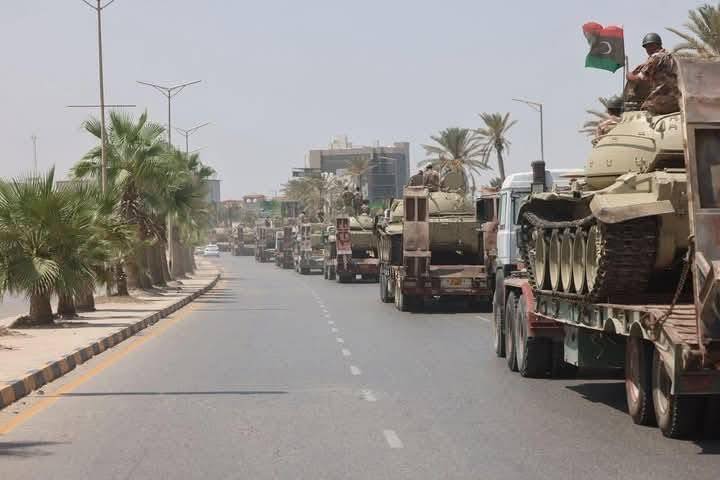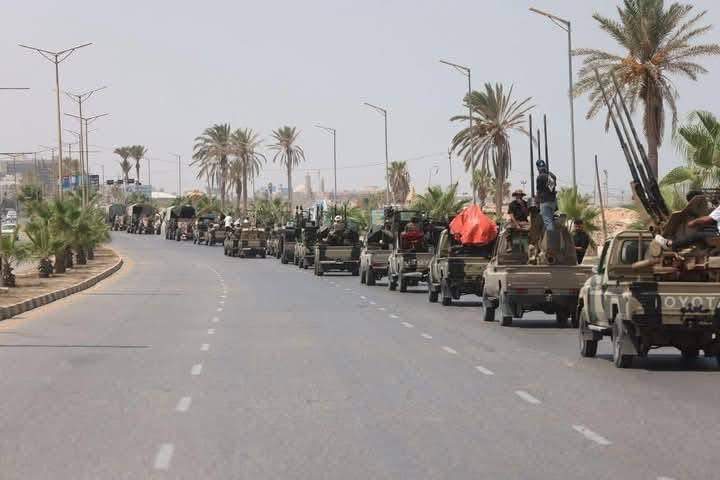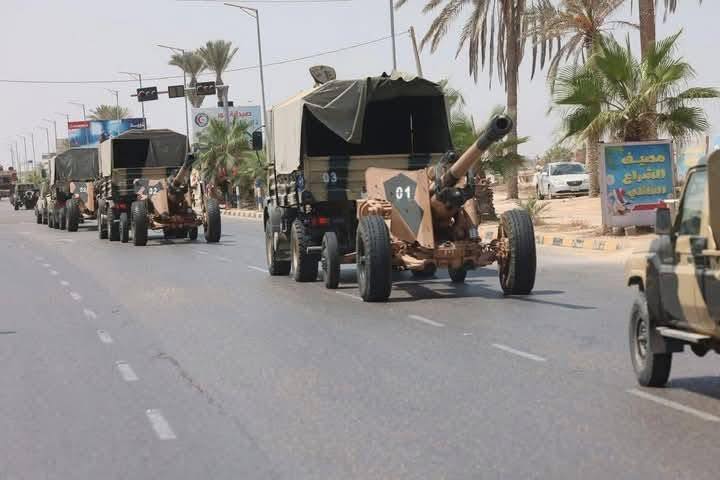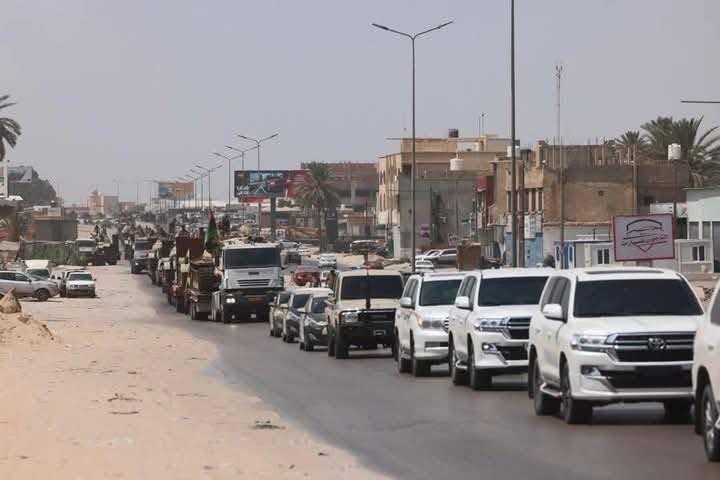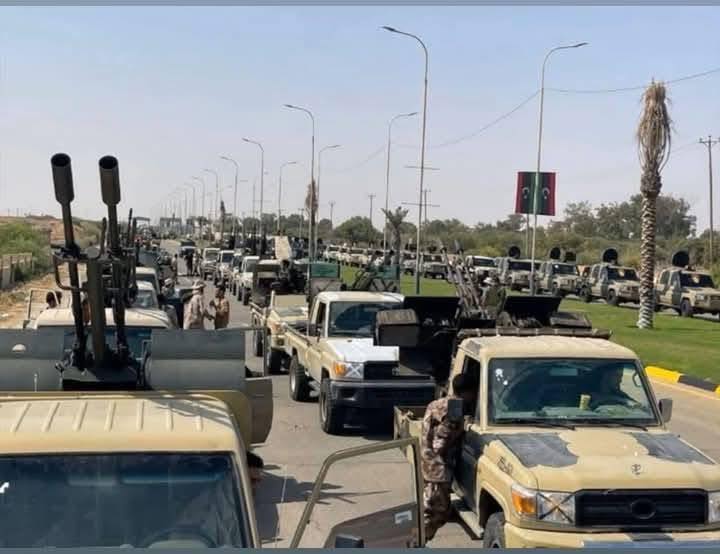Tripoli— The security situation in the Libyan capital remains tense and fragile after the over three-million residents of Tripoli had spent the night expecting a war between the armed groups allying with the head of the Government of National Unity (GNU), Abdulhamid Dbeibeh, and Special Deterrence Force (SDF), known as Rada, would breakout any moment.
On Saturday, the United Nations Support Mission in Libya (UNSMIL) said it was following with “deep concern” the continued buildup of forces and heavy weapons around Tripoli, describing it as a “dangerous development.” UNSMIL’s statement seem to have calmed things down and the public felt relieved on Sunday morning.
On Sunday, the Security and Military Arrangements Committee (SMAC) of the Presidential Council (PC) said in a statement that it is closely monitoring the recent military movements in the capital and other areas, demanding that all armed groups that moved into the city return to their designated areas immediately.
As it called on all units to exercise discipline and refrain from unilateral actions, the SMAC emphasized the importance of strict adherence to the ceasefire, as it is the basis for preserving lives, property and ensuring the continuation of the political and security process.
The SMAC noted the continuation of direct coordination with the General Staff and security services to unify efforts and confront any potential threat to national unity or civil peace. It reassured the public that it is in a constant contact with local and international partners to support stability throughout the country.
UNSMIL reaffirmed its support to the ongoing role played by the Truce Committee (TC) and the Security and Military Arrangements Committee under the auspices of the Presidential Council, saying that it was “aware that progress has been made on a number of issues of concern to the GNU.”
“We call on all parties to continue dialogue to resolve this matter as soon as possible, and exercise maximum restraint to avoid escalating tensions or endangering civilians,” the UNSMIL’s statement said.
It also warned that “any action entailing the use of force, whether intentional or not, has the potential to escalate into violent clashes.” Without pointing the finger to those who initiated the tension or the ultimatum, UNSMIL stressed that the most recent buildup is “causing widespread fear among Tripoli’s population.”
“We urge the authorities to ensure clashes do not break out because of the potential harm to civilians in the most densely populated city in the country,” it emphasized.
Also on Sunday, the head of the European Union Delegation to Libya Nicola Orlando held a meeting on the current security developments in Tripoli with the Deputy Minister of Defense of the GNU, Abdulsalam Al Zoubi. Orlando said he reiterated the EU’s call for all parties to resolve differences peacefully, de-escalate tensions and to work with the SMAC and UNSMIL in order to prevent threats to civilians.
On 28 August, media reports alleged that the Ministry of Defense, also headed by Dbeibeh, sent an ultimatum to the SDF to fulfill four main demands or it would face a military attack within 48 hours. The demands include the handing over those wanted by the Stability Support Apparatus; handing over the airport to the Ministry of Transportation; handing over the prison to the Ministry of Justice and handing over heavy weapons to the Ministry of Defense.
However, the ministry denied that it issued an ultimatum and described the reports as fake, according to Al-Mashhad newspaper. Yet armed groups has continued to pour in into Tripoli mostly coming from the city of Misurata along with other regions. These armed groups are equipped with heavy weapons including tanks, artillery, drones and thousands of personnel.
According to the paper, sources in the Ministry of Defense explained that the recent military movements inside Tripoli, including the mobilization and deployment of convoys, are not aimed at attacking Mitiga Airport, but rather are part of political pressure on the SDF to push it to make concessions in favor of the GNU.
Regarding the Turkish forces stationed inside the Maitiga airbase, the paper said its sources confirmed that they remain in their usual positions within the camp and continue to carry out their duties normally without any change in their field situation. In addition, there have been no indications that these forces were preparing to move out of the base.
